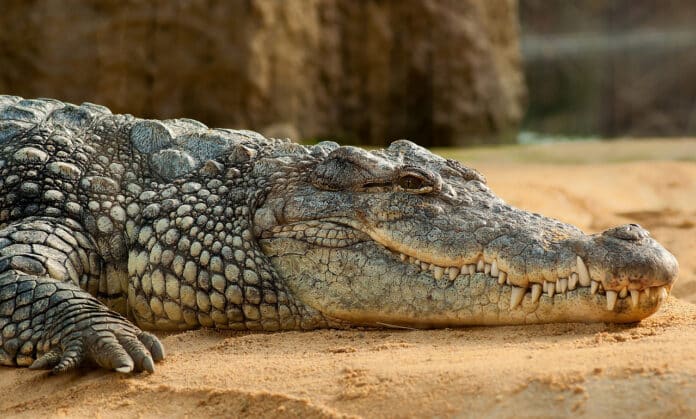Crocodilians are an order of ancient reptiles that thrive in pathogen-rich environments. They can inhabit these harsh environments. This ability is indicative of a resilient innate immune system.
Defensins, a family of cysteine-rich cationic host defense peptides, are a significant component of the innate immune systems of all plant and animal species; however, crocodilian defensins are poorly characterized.
Crocodiles have great antifungal defenses through which they resist fatal fungal infections.
A new study by La Trobe University researchers shows that saltwater crocodile defensin harbors potent antifungal activity. The study could create a targeted treatment for fungal infections in humans, which are becoming increasingly frequent due to growing antibiotic resistance.
Lead author from La Trobe University, Scott Williams, said, “We solved structures of crocodile defensins, and they look surprisingly like the same proteins in humans. We could use them as a template to treat fungal infections in humans.”
“Soon, we will be able to adapt their defense to our own needs.”
“It’s the first time this function has been found in any plant or animal.”
“We haven’t seen the pH sensing mechanism in other animals or plants. The defensins are able to change their activity based on the pH environment, so we could engineer other defensins to turn off or on depending on the presence of infection.”
“Some treatments act on healthy cells by accident whereas this mechanism could help to reduce these off-target effects and focus on what’s harmful.”
Senior author Professor Mark Hulett said, “the study is also the first to document the structure of the defensin membrane attack in high resolution.”
“Using the power of the Australian Synchrotron, together with co-author Prof Marc Kvansakul, we were able to generate structural data to define how defensins attack and kill fungal pathogens.”
The saltwater crocodile defensin CpoBD13 harbors potent antifungal activity that is mediated by a pH-dependent membrane-targeting action. CpoBD13 binds the phospholipid phosphatidic acid (PA) to form a large helical oligomeric complex, with specific histidine residues mediating PA binding. Based on the pH level of the cell’s outer wall, CpoBD13 will recognize and attack fungal infections.
Professor Hulett said, “Consequently, our findings provide a model for understanding the anti-microbial activity of other defensins, including those in humans.”
Journal Reference:
- Williams, S.A., Lay, F.T., Bindra, G.K., et al. Crocodile defensin (CpoBD13) antifungal activity via pH-dependent phospholipid targeting and membrane disruption. Nat Commun 14, 1170 (2023). DOI: 10.1038/s41467-023-36280-y
